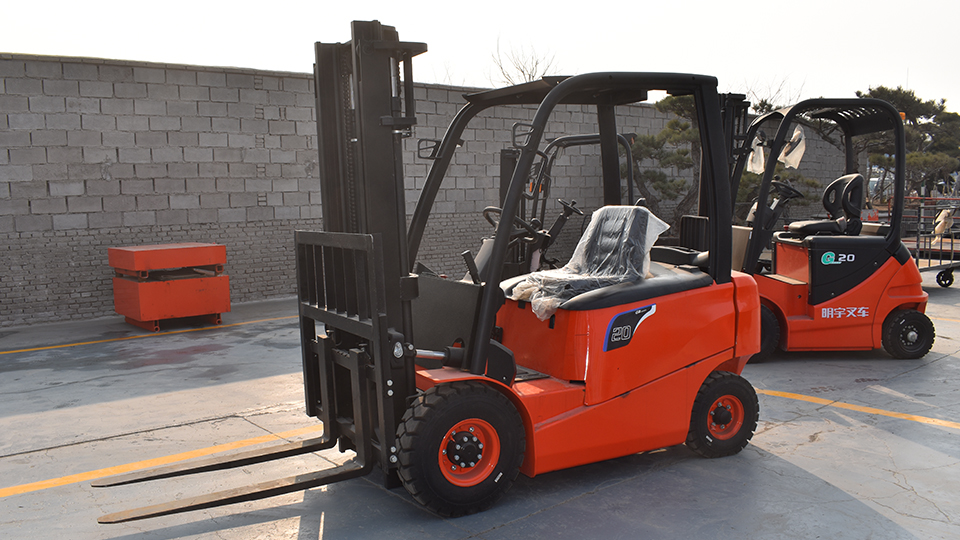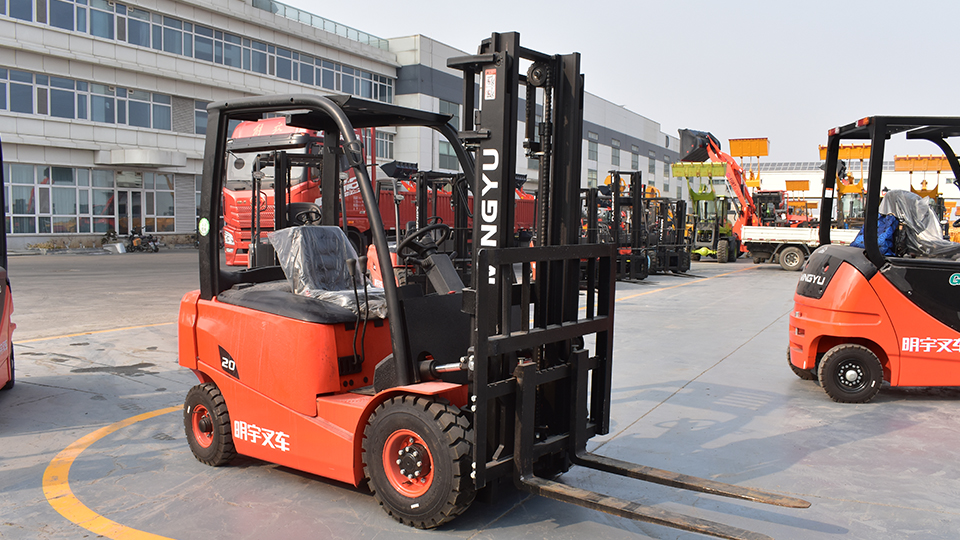
What Does a Forklift Operator Do?
A forklift operator is a skilled professional responsible for operating a specialized piece of heavy machinery called a forklift (or lift truck). The primary function of this role is to move, stack, load, and unload materials and products within a warehouse, construction site, distribution center, or other industrial setting. It's a critical position that requires a unique blend of technical proficiency, safety consciousness, and a deep understanding of logistics.
Core Responsibilities
The day-to-day tasks of a forklift operator are multifaceted and crucial to the efficiency of any operation. Their duties extend beyond simply driving a machine and include:
Material Handling: The most fundamental responsibility is the safe and efficient movement of goods. This involves using the forklift's tines (or forks) to lift, transport, and deposit pallets, crates, and other materials.
Loading and Unloading: Operators are often tasked with loading goods onto trucks, railcars, and other vehicles for transportation or unloading incoming shipments and placing them in designated storage locations. This requires precision to avoid damaging the product or vehicle.
Inventory Management: Forklift operators play a vital role in maintaining an organized warehouse. They ensure that products are placed in the correct racks and sections, which is essential for accurate inventory tracking. They may also be responsible for conducting cycle counts or using warehouse management system (WMS) scanners.
Equipment Maintenance: While not mechanics, operators are responsible for daily pre-shift inspections. This includes checking the fluid levels, tire pressure, brakes, and a general visual inspection for any damage. They must report any issues to a supervisor or maintenance team.

Safety and Compliance: Adherence to strict safety protocols is paramount. Operators must be trained and certified to operate the equipment, and they must follow company, OSHA (Occupational Safety and Health Administration), and other regulatory guidelines. This includes wearing proper personal protective equipment (PPE), following speed limits, and being aware of their surroundings.
Types of Forklifts and Their Applications
The term "forklift" is a broad category. Operators must be trained on the specific types of equipment they use, as each has a different purpose and set of operational requirements. The main classifications are:
Counterbalance Forklifts: This is the most common type of forklift. . These machines have a weight in the rear to counteract the load being carried in the front. They are versatile and used for a wide range of tasks, including loading/unloading trucks and general warehouse work. They can be powered by electricity, propane, diesel, or gasoline.
Reach Trucks: . Designed for use in narrow aisles, reach trucks can extend their forks forward to "reach" into racks. They are essential for high-density storage facilities and are exclusively electric-powered.
Order Pickers (or Stockpickers): . These are used to pick individual items from high shelves. The operator stands on a platform that lifts them up to the level of the product, allowing them to manually retrieve items and place them on a pallet.
Pallet Jacks (or Pallet Trucks): While not always considered a "forklift" in the traditional sense, powered pallet jacks are often operated by forklift-certified personnel. They are used for moving pallets on the ground level over short distances.
Rough Terrain Forklifts: . These are built for construction sites and outdoor use, with large, pneumatic tires and a rugged chassis to handle uneven surfaces. They are typically powered by diesel or gasoline.
Skills and Qualifications
To be an effective forklift operator, a person needs a specific set of skills and qualifications:
Certification and Training: In the United States, all forklift operators must be trained and certified according to OSHA standards. This training includes classroom instruction on safety regulations and hands-on practice operating the equipment. Retraining is required every three years or after a significant incident.
Physical Dexterity and Hand-Eye Coordination: Operating a forklift requires a high degree of precision to maneuver in tight spaces, lift loads accurately, and place them without damage.
Spatial Awareness: Operators must be constantly aware of their surroundings, including pedestrians, other vehicles, and the stability of their load.
Attention to Detail: Correctly identifying products, checking for damage, and ensuring proper placement are all critical tasks.
Problem-Solving Skills: Operators often encounter unexpected challenges, such as a misplaced pallet, a blocked aisle, or a damaged product, and must be able to adapt and find a solution.
The Importance of Safety
Safety is not just a buzzword for forklift operators; it is a fundamental requirement of the job. According to OSHA, powered industrial trucks are responsible for thousands of injuries and dozens of fatalities each year. The vast majority of these accidents are preventable and are often related to a few key areas:
Load Stability: Incorrectly loading a pallet can cause the load to shift or fall, leading to injury and product damage. Operators must ensure the weight is centered and the load is stable.
Speeding: Operating a forklift too fast is a leading cause of accidents, including tip-overs.

Pedestrian Awareness: Failure to yield to pedestrians or a lack of situational awareness can lead to tragic accidents.
Tip-Overs: The most common cause of forklift fatalities is a tip-over, which can happen when the machine is overloaded, turning too quickly, or operating on an incline.
A competent forklift operator understands these risks and takes proactive measures to mitigate them by following all safety protocols, performing daily equipment checks, and never taking shortcuts. Their diligence directly contributes to the well-being of their colleagues and the integrity of the company's assets.
In conclusion, the role of a forklift operator is far more than just "driving a truck." It is a technical, demanding, and highly responsible position that serves as the backbone of logistics and supply chain operations worldwide. It requires a specific skill set, formal training, and an unwavering commitment to safety.
Name: selena
Mobile:+86-13176910558
Tel:+86-0535-2090977
Whatsapp:8613181602336
Email:vip@mingyuforklift.com
Add:Xiaqiu Town, Laizhou, Yantai City, Shandong Province, China